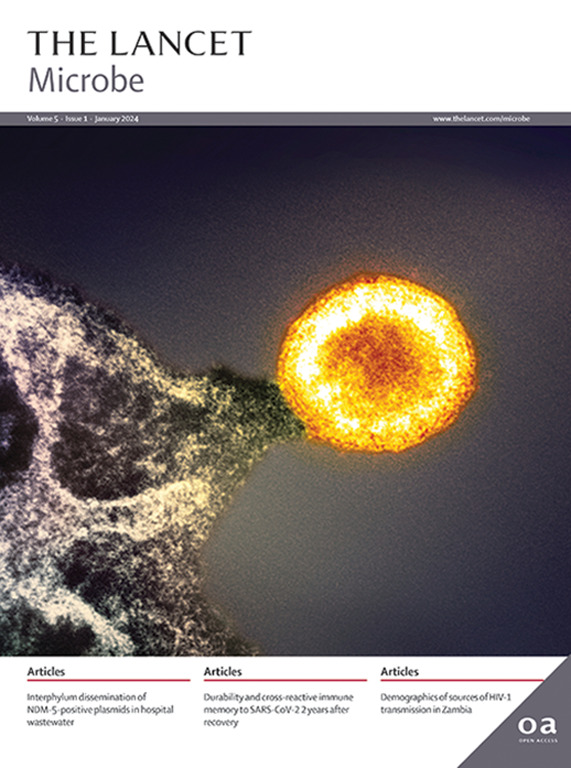Climate change and Trypanosoma cruzi transmission in North and central America
IF 20.9
1区 生物学
Q1 INFECTIOUS DISEASES
引用次数: 0
Abstract
Trypanosoma cruzi is a protozoan parasite that causes Chagas disease in humans. Transmission of T cruzi by triatomine vectors is dependent on diverse environmental and socioeconomic factors. Climate change, which is disrupting patterns of human habitation and land use, can affect the epidemiology of Chagas disease by influencing the distribution of vector and host species. We conducted a review using triatomine distribution as a proxy for T cruzi transmission in North America (Canada, Mexico, and the USA) and central America (Belize, Costa Rica, El Salvador, Guatemala, Honduras, Nicaragua, and Panama) and investigated the association of T cruzi transmission with climate change, identifying 12 relevant studies. Most studies (n=9) modelled the effect of the scenario of climate change on the distribution of relevant vector species and found that global warming could sometimes favour and sometimes hinder triatomine distribution. There is a need for more research in parasite biology and social sciences to further understand how climate change and socioeconomic factors can affect the epidemiology of this neglected tropical disease.
气候变化与北美洲和中美洲的克鲁兹锥虫传播。
克鲁兹锥虫是一种原生动物寄生虫,会导致人类患上南美锥虫病。克鲁兹锥虫通过三蠹类媒介传播取决于各种环境和社会经济因素。气候变化扰乱了人类居住和土地使用的模式,会通过影响病媒和宿主物种的分布来影响恰加斯病的流行病学。我们以北美(加拿大、墨西哥和美国)和中美洲(伯利兹、哥斯达黎加、萨尔瓦多、危地马拉、洪都拉斯、尼加拉瓜和巴拿马)的三螨分布作为南美锥虫病传播的替代物进行了回顾,并调查了南美锥虫病传播与气候变化的关系,确定了 12 项相关研究。大多数研究(9 项)模拟了气候变化情景对相关病媒物种分布的影响,发现全球变暖有时有利于三蠹的分布,有时则会阻碍三蠹的分布。有必要在寄生虫生物学和社会科学方面开展更多研究,以进一步了解气候变化和社会经济因素如何影响这种被忽视的热带疾病的流行病学。
本文章由计算机程序翻译,如有差异,请以英文原文为准。
求助全文
约1分钟内获得全文
求助全文
来源期刊

Lancet Microbe
Multiple-
CiteScore
27.20
自引率
0.80%
发文量
278
审稿时长
6 weeks
期刊介绍:
The Lancet Microbe is a gold open access journal committed to publishing content relevant to clinical microbiologists worldwide, with a focus on studies that advance clinical understanding, challenge the status quo, and advocate change in health policy.
 求助内容:
求助内容: 应助结果提醒方式:
应助结果提醒方式:


